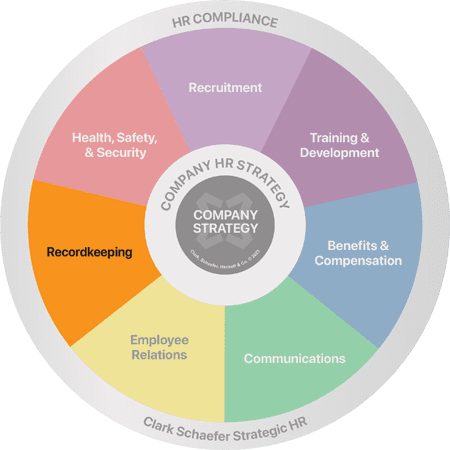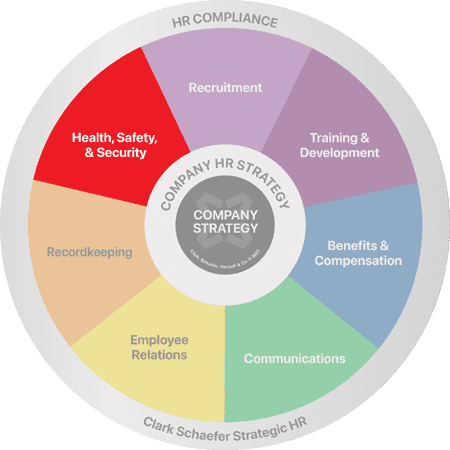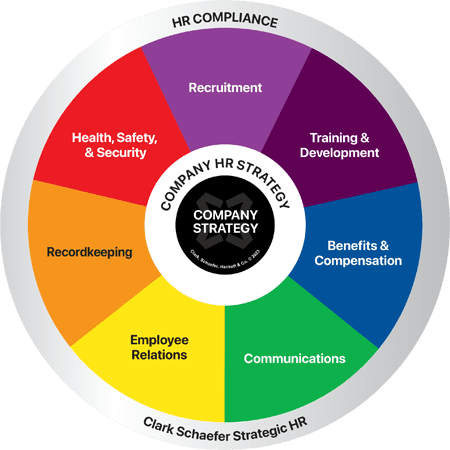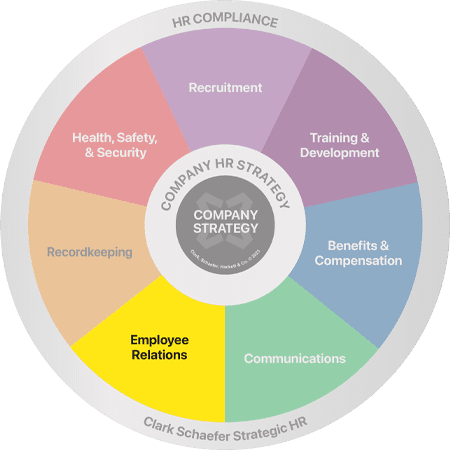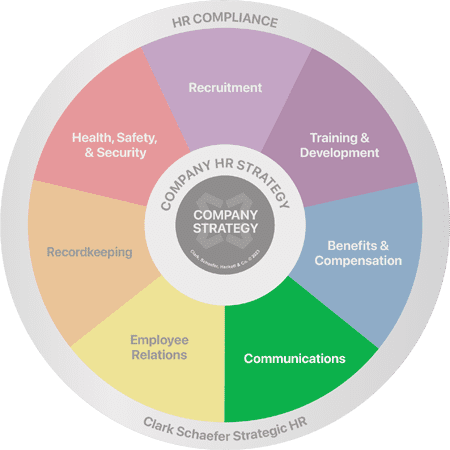What Questions Should I Ask During An Exit Interview?
Last Updated on June 26, 2025 / Employee Relations

HR Question:
We’ve decided to start conducting exit interviews but aren’t sure of the right questions to ask. What are some key questions to ask during an exit interview?
HR Answer:
Exit interviews are an important part of the employee life cycle. These interviews, conducted after an employee has formally turned in their resignation and is in their last few days of employment with your organization, allow you to get feedback to examine and potentially improve processes, expectations, and experiences within the company. While typically conducted with an employee who is leaving on their own terms for another opportunity, you can also conduct exit interviews with those employees who are relocating, retiring, or leaving for personal reasons.
Take the time to discuss topics such as pay and benefits, team culture and expectations, and reasons why someone may have felt prompted to search for opportunities elsewhere. The answers to these questions can help you develop strategies for your HR processes. Plus, this feedback is critical to reducing turnover and creating an environment your employees want to work for. You can’t fix what you don’t know, and you won’t know unless you ask. Preparing ahead of time can allow you to ask focused questions that will lead to the necessary answers.
How to prepare for an Exit Interview
The first step in conducting an effective exit interview is to ask yourself what you are hoping to accomplish by talking to the exiting employee. Are there areas or blind spots that they may be able to shed light on or provide additional insight into? This opportunity will allow you to gather feedback that current and remaining employees may be too hesitant to share.
You may have some suspicions as to the underlying reason(s) for employees’ departures, so this can be an opportunity to test out your hypotheses. For example, you may be concerned that your salary ranges are not up to date with your market and industry, and you are lagging behind your competitors. Or is the employee leaving because of a manager, supervisor, or co-worker? Do you want to look at your culture to see if it promotes teamwork, accountability, and appreciation?
Additionally, be prepared to see the organization through this individual’s lens. They may not have had the best experience, or perhaps they felt consistently frustrated by certain elements. As a result, be prepared to listen to their feedback (and potential negative approach) with an impartial ear and an eye looking for potential opportunities for improvement.
What questions should I ask?
After determining the why, start creating questions that will get you the information you are seeking. Of course, there are many questions that you could ask, so we recommend you identify a set of questions that can be discussed in a reasonable amount of time. Here are some suggestions:
- Were you looking for a job (and if so, what made you decide to start looking)?
Because of the current job market, many employers pursue passive job seekers and provide the employee with a terrific employment opportunity. If the individual was actively applying for new roles, this might help get to the root of why they wanted to leave. - What caused you to accept the position?
This is where the interviewer can get to a key differentiator between their organization and their competition. More pay, better benefits, remote work, work culture, toxic manager, etc. may be reasons why the offer made couldn’t be refused. - Did your manager meet your expectations for providing appropriate direction, support, and leadership?
It is often said that people leave a manager, not a job. If their expectations weren’t met, ask probing questions to understand why. This can shed light on any supervision and leadership issues that may need to be addressed. - How can our company improve our training and/or onboarding process?
For those newer to your company, this question allows you to determine how the employee felt about their first few months in your organization and if they feel they received sufficient training to do their job. If the employee has been with your organization for a longer time period, be sure to clarify that their suggestions can also come from their experience or role in training and onboarding processes as well. - What, if anything, would you have changed about your job?
A good follow-up question to this one is “if that change were implemented, would you return to work here?” Again, this question can get to the root cause of the turnover, and if the departing employee feels strongly enough about the company to consider returning at a future time. Remember that boomerang employees can be an asset to your organization as they can return re-energized and more engaged, so keep that door open when it’s appropriate to do so. - Would you refer a friend or family member to work here?
This question can give you additional information about the culture of the organization. If the answer is “yes, but not in my department,” follow-up questions may again reveal issues that should be addressed.
For additional areas to probe, Glassdoor provides more exit interview questions to consider.
What to do after an Exit Interview
After the exit interview, consider how you will use the data. Are you sharing it with the managers or leadership team, or are you checking the exit interview off your list and storing the information? Look for themes, especially if there is increasing turnover in one department or position. For example, are all of your customer service representatives leaving because they didn’t feel as though they were trained appropriately? Do your departing IT professionals complain about a lack of support from their manager? Use the data from exit interviews to create action plans to address issues and concerns.
Exit interviews can be used as a great tool to target turnover and retention issues. An effective exit interview is also valuable in pinpointing management and cultural challenges in an organization if the data is used appropriately. An alternate strategy is to open lines of communication with employees before they leave by conducting employee surveys or implementing stay interviews to identify and address issues before they choose to exit.
Thank you to Sheryl Fleming, MA, SHRM-SCP, for contributing to this HR Question of the Week.
Do you know why your employees choose to leave your organization? Exit interviews, while time-consuming, can be key tools for better understanding your company’s retention opportunities. Our team at Strategic HR can help you construct and conduct stay and exit interviews to learn more about why employees stay or go. Visit our Employee Relations page or Contact Us to learn how we can lend a hand in your employee retention efforts.

